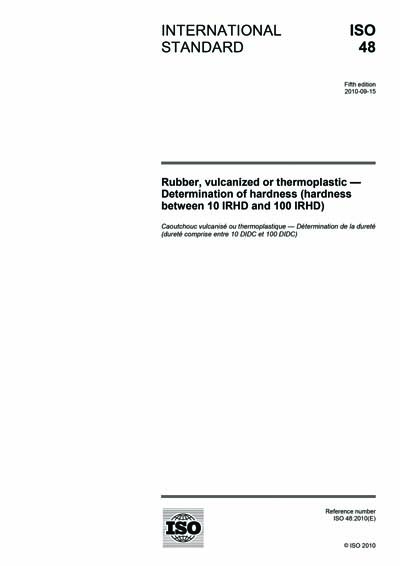Historical
ISO 48:2010
Rubber, vulcanized or thermoplastic - Determination of hardness (hardness between 10 IRHD and 100 IRHD)
ISO 48:2010 specifies four methods for the determination of the hardness of vulcanized or thermoplastic rubbers on flat surfaces (standard-hardness methods) and four methods for the determination of the apparent hardness of curved surfaces (apparent-hardness methods). The hardness is expressed in international rubber hardness degrees (IRHD). The methods cover the hardness range from 10 IRHD to 100 IRHD.
These methods differ primarily in the diameter of the indenting ball and the magnitude of the indenting force, these being chosen to suit the particular application.
ISO 48:2010 does not specify a method for the determination of hardness by a pocket hardness meter, which is described in ISO 7619‑2.
ISO 48:2010 does not specify the determination of the apparent hardness of rubber-covered rollers, which is specified in ISO 7267 (all parts).
International Organization for Standardization [iso]

